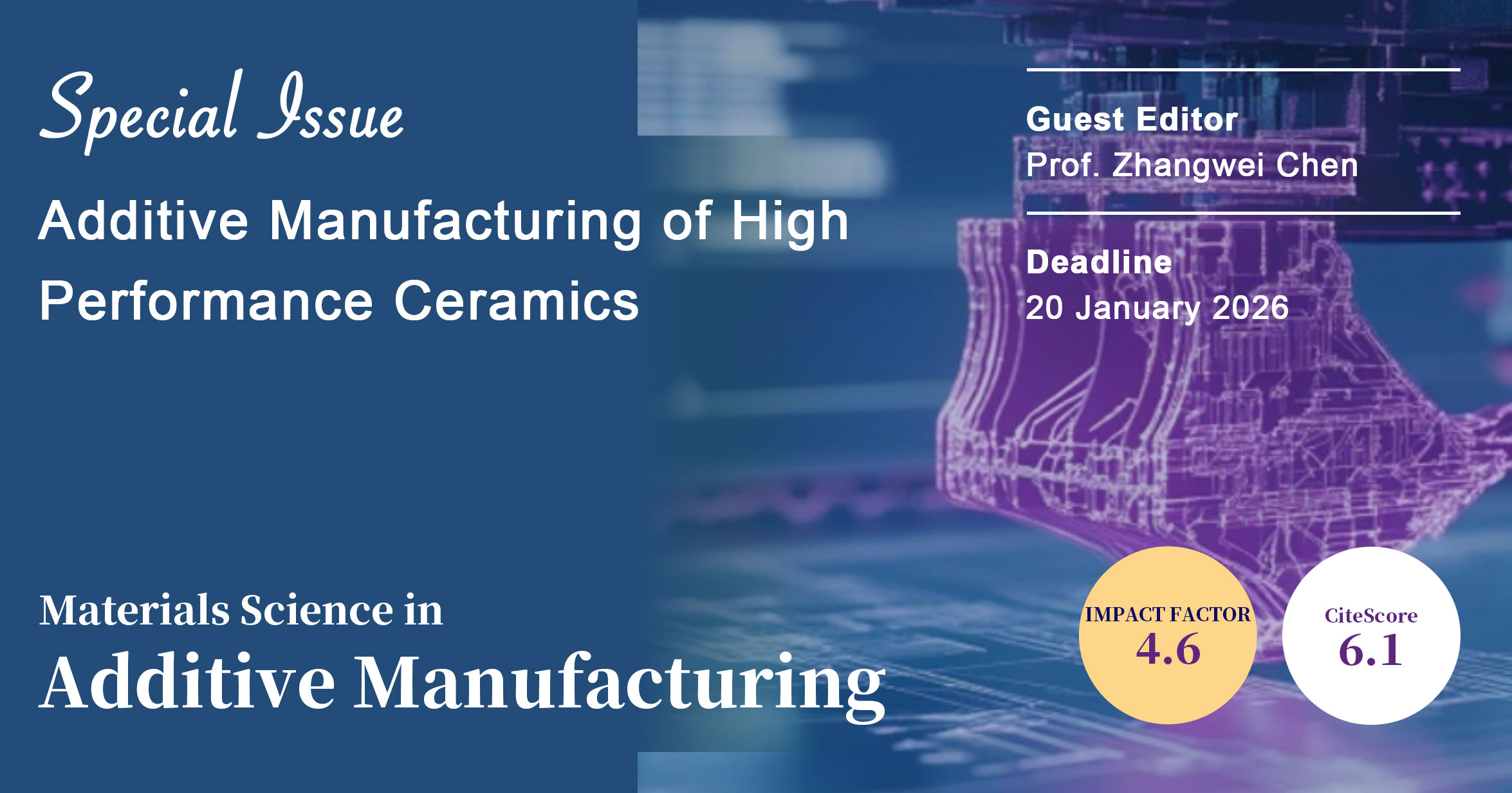
Ceramic materials have demonstrated immense potential in aerospace, energy, medical, and other fields due to their exceptional high-temperature resistance, corrosion resistance, and biocompatibility. To foster academic exchange and advance research in this domain, this special issue on "Additive Manufacturing of High Performance Ceramics" invites high-quality original research and review articles from scholars worldwide. Topics of interest include, but are not limited to: Development of AM processes for novel ceramic materials, Multi-scale structural design and performance optimization in ceramic AM, Manufacturing and post-processing techniques for ceramic components in extreme environments, Machine learning-driven process-performance prediction and intelligent control, Innovative applications of ceramic AM in biomedicine, electronic devices, nuclear energy, and related fields.
Ceramic additive manufacturing via vat photopolymerization


